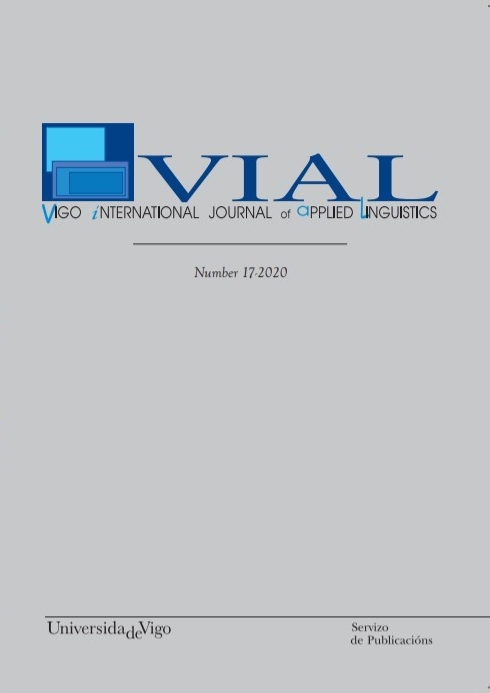Does younger mean better? Age of onset, learning rate and shortterm L2 proficiency in young Danish learners of English
DOI:
https://doi.org/10.35869/vial.v0i17.1465Palabras clave:
Early foreign language learning, receptive vocabulary, receptive grammar, phonetic discrimination, semi-longitudinal studyResumo
This paper reports the results of a semi-longitudinal study investigating the role of age of onset in early foreign language (English) learning. We compared two groups of Danish school children (N = 276) who, following an educational reform in 2014, started their first English classes the same year but at different ages. One group (the early starters) was introduced to English in the 1st grade (age 7-8) and the other group (the late starters) in the 3rd grade (age 9-10). Children’s receptive vocabulary, receptive grammar, and phonetic discrimination skills were followed for three years, allowing comparisons across groups and time and tracking learning rate and shortterm proficiency (after one and two years of instruction). Results showed that the late starters outperformed the early starters in most tests. With respect to learning rate, the tests also revealed that the late starters had an advantage in the receptive grammar test, whereas the phonetic discrimination test showed a more diffuse picture with the late starters seemingly halting in development and the early starters advancing. The results also showed gender differences with boys achieving a higher level of proficiency and exhibiting a faster learning rate than girls. The pedagogical implications of the results are discussed.
Descargas
Descargas
Publicada
Número
Sección
Licenza
Libros UVigo é o portal de publicación en acceso aberto das revistas da Universidade de Vigo. A posta a disposición e comunicación pública das obras no portal efectúase baixo licenzas Creative Commons (CC).
Para cuestións de responsabilidades, propiedade intelectual e protección de datos consulte o aviso legal da Universidade de Vigo.



